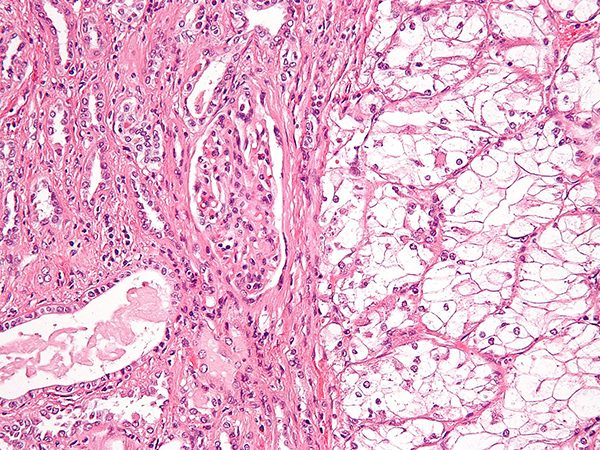AACR to Host Virtual Meeting on Clonal Hematopoiesis
Deep within our bodies, blood cells undergo a continuous process of replication. As part of this process, some stem cells develop mutations that are passed along to all the cells that they create. This process, called clonal hematopoiesis, can confer an increased risk for conditions including cardiovascular disease, hematologic malignancies including leukemia, and shorter survival for patients with solid tumors.
On August 18 and 19, the American Association for Cancer Research (AACR) will host the AACR Virtual Meeting: Clonal Hematopoiesis. The meeting will explore the biology of clonal hematopoiesis, the mutations that are most closely associated with it, and its clinical impact.
Clonal hematopoiesis is thought to be a natural part of the aging process. While clonal hematopoiesis is not a malignancy, it does provoke interesting questions for cancer researchers, given its association with blood cancers. This year’s meeting will include talks on Dnmt3A (DTA) mutations—the most frequent alterations in clonal hematopoiesis—and non-DTA mutations, and how to potentially design clinical trials and manage drug approvals for clonal hematopoiesis.
To set the stage for the meeting, here’s a look at some past Cancer Research Catalyst posts on clonal hematopoiesis, beginning with an overview from the editor-in-chief of Cancer Today, the AACR’s magazine for cancer patients, survivors, and caregivers. Another post discusses the role of clonal hematopoiesis in the development of classical Hodgkin lymphoma. This post explains how clonal hematopoiesis can potentially complicate the interpretation of data from liquid biopsies.
Registration for the virtual conference is available through the meeting website. Registration includes access to all live sessions and on-demand recordings of the sessions, available for 90 days, starting five to seven days after the close of the conference.



